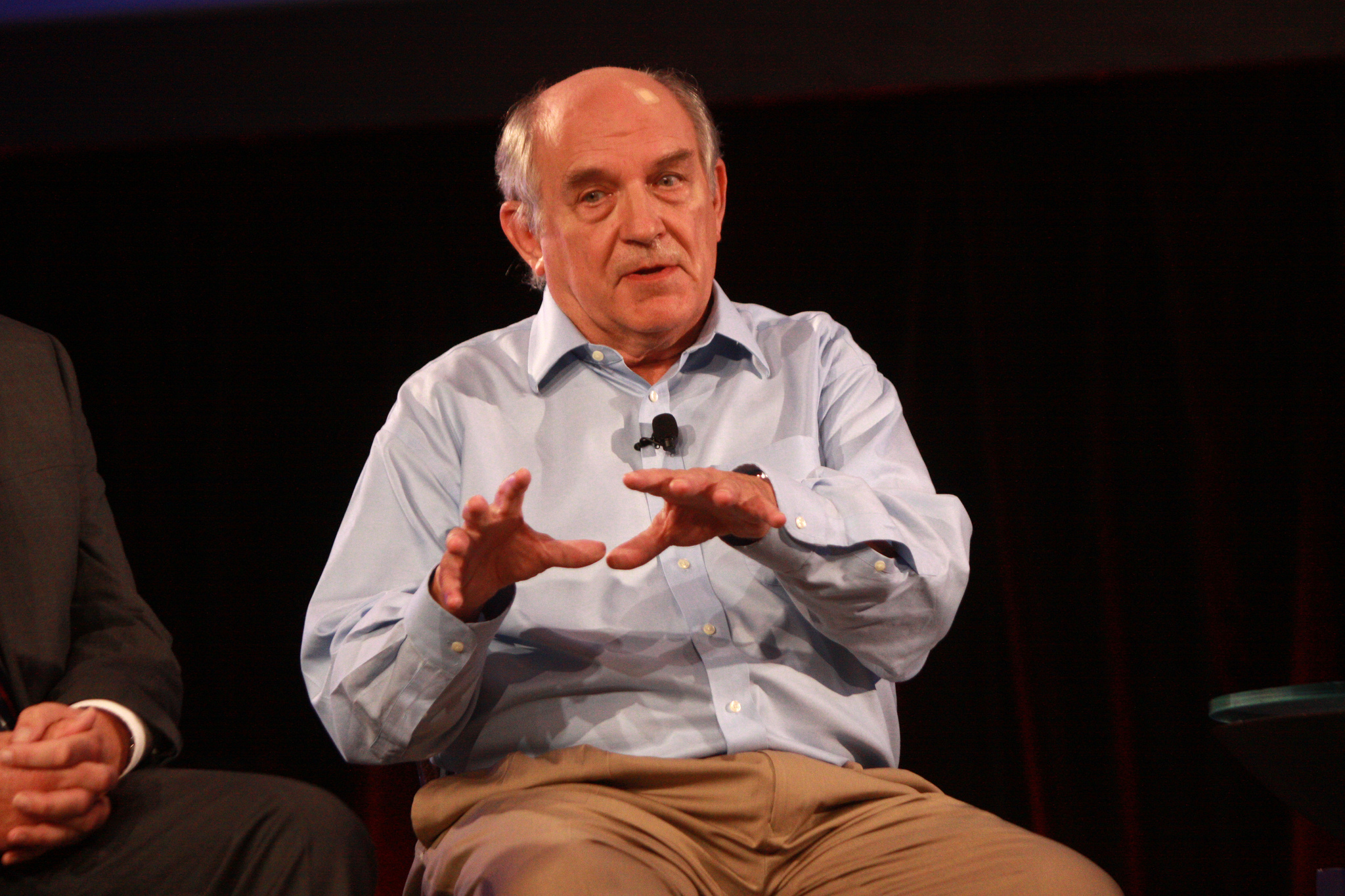
Charles Murray speaking at FreedomFest in Las Vegas, Nevada. July 11, 2013 (Gage Skidmore/Flickr)
Political scientist and author Dr. Charles Murray explored how the development of what he coins the “new upper class” plays a significant role in America’s political divide at a talk on Thursday.
This group, which he explains is not a code word for Democratic liberal elite, but rather a cosmopolitan group of highly educated professionals who possess disproportionate influence over the general public, is culturally isolated from the working class. Extreme differences in lifestyles and upbringings between the two segments of the population have created much of the political strife witnessed in recent years, well in advance of the election of Donald Trump, Murray said.
Murray followed by highlighting the relevance in these differences and the power differential that exists between the two groups by emphasizing the effects this holds on public policy and how this upsets the working class. Everyone lives in a bubble, he analogized, but the bubbles that exist around members of the new upper class and the working class are not equal.
“There is an asymmetry in the effects that people in the bubbles of Georgetown have than the people of Tulsa, Oklahoma,” Murray said. “The truck driver cannot screw up the life of the secretary of commerce, but the secretary of commerce can screw up the life of the truck driver.”
Murray also introduced the concept that both ends of the political spectrum have rejected a set of core principles — specifically human dignity and respect for individuals — traditionally used to stimulate discourse and cooperation.
This consensus outlined in The American Creed, he explained, has been historically upheld neither by the right or the left specifically, but instead by both in a joint national effort.
“Right now we have identity politics on the left, and especially in academia, which explicitly repudiates the notion that people should be dealt with as individuals,” Murray said. “On the right, you also have now a goshen of populism which has repudiated the notion of limited government.”
According to Murray, these factors contribute to a growing cultural and economic national divide, providing an answer to the talk’s central question of why America is coming apart.
“I think he did not spend nearly enough time addressing the very real motivations of racism and misogyny and ignorance and hate … things that I think were just as much factors as any economic considerations,” said Travis Weiner, graduate student, after the talk.
Murray has drawn controversy for his book The Bell Curve, which argued that IQ differences between the races are genetic. Protests erupted at universities he has lectured at earlier this year. Given that and the events which unfolded the night Milo Yiannopoulos spoke at CU Boulder in January, heightened security was present at the event with officers at the front of the lecture hall and near the entrance.
Students in attendance were pleasantly surprised that the event transpired respectfully and without conflict, expressing pride toward the student body for their civility in allowing the controversial speaker to come.
“I was expecting a little bit more pushback, but that’s okay because I think open discourse ensures the functioning of our democracy,” graduate student Sara Dunn said.
Murray was also praised for expressing himself in a courteous manner, respectful of opposing views.
“He wasn’t trying to offend anyone, he was trying to be informative and state his opinion on what has happened in America,” undergraduate student Jeffrey Arbaugh said.
Contact General News Editor Heidi Harris at heidi.harris@colorado.edu.
